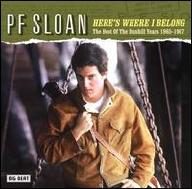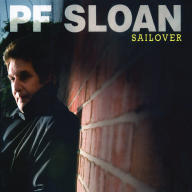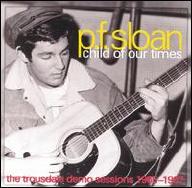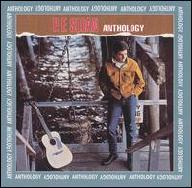Sloan's most influential composition was the Bob Dylan-inspired "Eve of Destruction," a number one hit for Barry McGuire in the fall of 1965. The song, which drew fire from conservatives and liberals alike, nevertheless became one of the defining protest anthems of the growing counterculture movement, and its success spurred Sloan to renew his own recording career in full. His comeback effort, "Sins of a Family," a bleak, poignant tale of teen prostitution, spent less than two weeks on the pop charts in late 1965, and the LP Songs of Our Times suffered backlash from a folk-rock community that dismissed Sloan as little more than a studio hack jumping on the latest commercial trend. Moreover, Dunhill execs blanched at the thought of losing their most successful songwriter, and spent virtually nothing on promoting his solo career. A 1966 follow-up set, Twelve More Times, fared no better, and a frustrated Sloan demanded release from his contract. Dunhill finally agreed, but forced him to sign away all songwriting royalties past, present, and future. Sloan's talent and integrity inspired fellow pop tunesmith Jimmy Webb to write a glowing tribute, "P.F. Sloan," but he remained persona non grata on the pop charts. His 1968 Atco debut, Measure of Pleasure, tanked, and he relocated to New York City, moving in with his parents and plotting his next move. Sloan did not resurface until 1972, releasing the much-maligned Raised on Records on the tiny Mums label. In the decade to follow, he battled depression and catatonia, finally resurfacing in 1985 with a handful of New York club dates. Sloan nevertheless resisted overtures to cut a new LP until 2006, teaming with producer Jon Tiven and guests including Lucinda Williams and Frank Black to record the Hightone release Sailover. He died of pancreatic cancer in November 2015. ~ Jason Ankeny, Rovi
P.F. Sloan
from New York, NY
September 18, 1945 - November 15, 2015 (age 70)
Biography
A seminal figure in the evolution of West Coast pop, singer/songwriter P.F. Sloan composed and produced some of the most enduring records of the 1960s. While his solo efforts remain folk-rock cult classics, they were barely promoted by longtime label Dunhill, and his subsequent exit from the company was the start of a fall from grace that culminated in a three-decade absence from the studio. Born Philip Gary Schlein in New York City on September 18, 1945, he spent the lion's share of his adolescence in Los Angeles. While browsing the Sunset and Vine music store Wallich's Music City, the 12-year-old met Elvis Presley, who agreed to an impromptu introductory guitar lesson. Within a year Sloan signed to Aladdin Records, issuing his debut single, "All I Want Is Loving," to little notice. The Mart label effort "She's My Girl" met a similar fate, but in 1961 he resurfaced as a staff songwriter with Screen Gems, which teamed him with fellow composer Steve Barri under the supervision of producer Gary Usher. As the Fantastic Baggys, Sloan and Barri capitalized on the budding surf craze with "Tell 'Em I'm Surfin'." They also co-wrote the Round Robin hit "Kick That Little Foot, Sally Ann," and when Screen Gems exec Lou Adler broke ranks to found his own label, Dunhill, he brought Sloan and Barri with him to write and produce. Throughout the mid-'60s, the Sloan/Barri partnership proved a hitmaking force to rival the likes of Bacharach/David or Goffin/King. Smashes like Johnny Rivers' "Secret Agent Man," the Turtles' "You Baby," and the Grass Roots' "Where Were You When I Needed You" were instrumental in defining the sound of Southern California rock & roll.
Top Tracks
Albums
Videos
Close


















